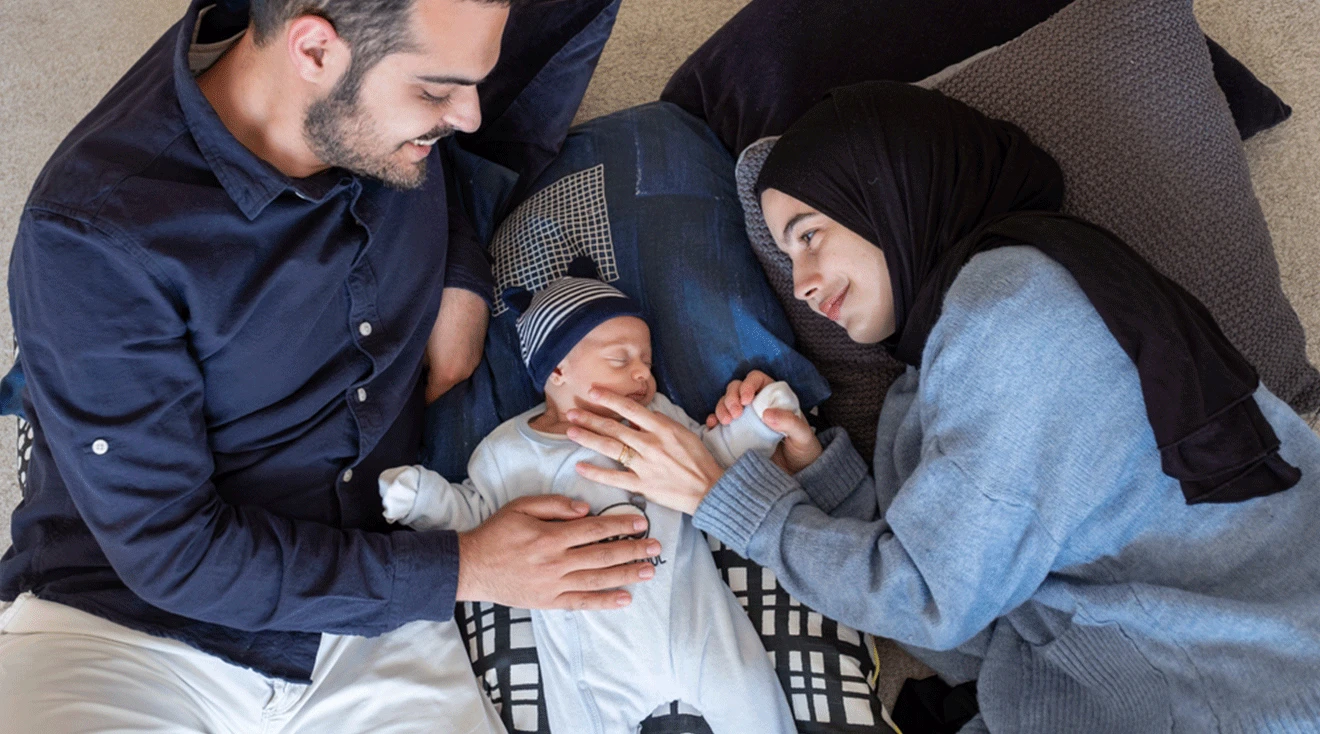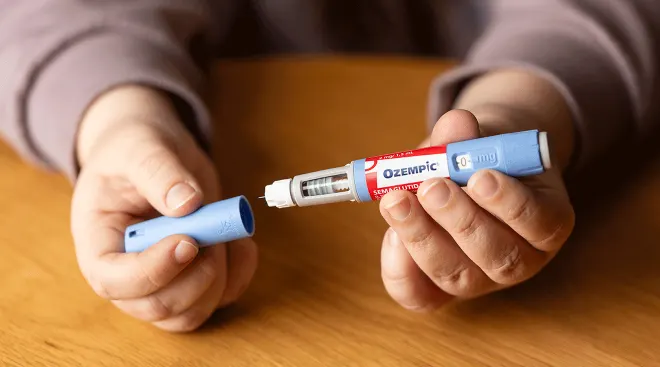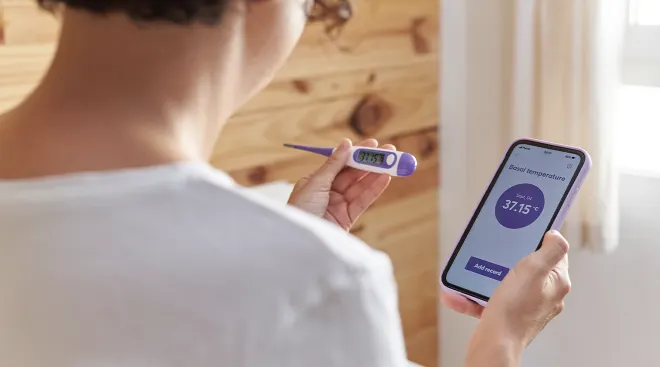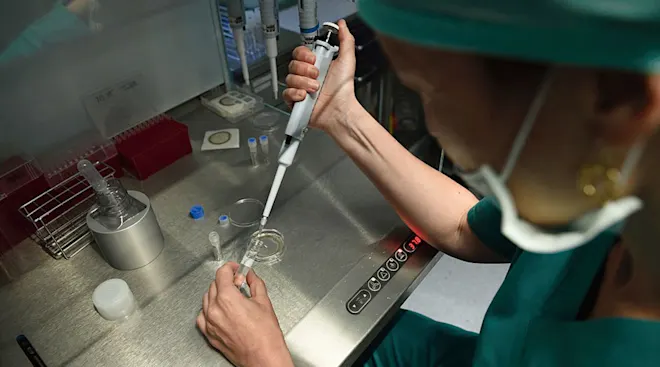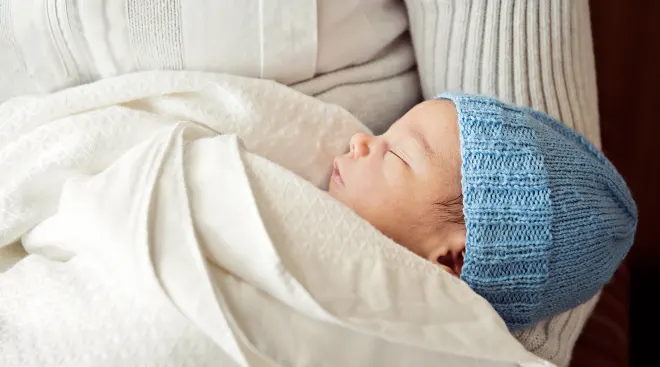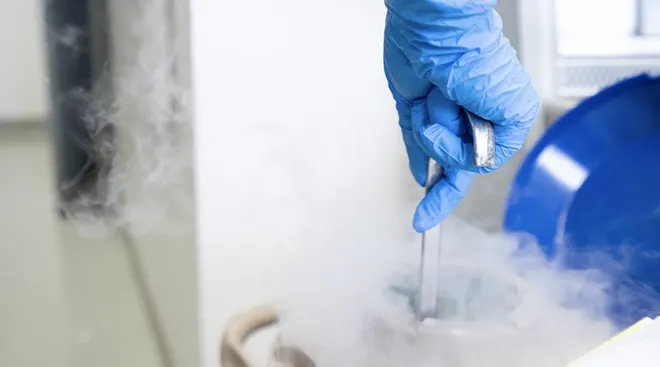How Soon Can You Get Pregnant After Childbirth?
Whether you’re looking to have another baby—or want to actively avoid getting pregnant—you might be wondering just how soon after giving birth you can get pregnant again. In theory, it’s possible to get pregnant very soon postpartum. How long you should actually wait is, of course, a very personal decision. So how soon can you get pregnant after childbirth? The experts break it down, below.
After birth, it’s possible to get pregnant again within the first three months postpartum, says Alex Robles, MD, a reproductive endocrinologist at Columbia University Fertility Center. You can get pregnant within this timeframe even if you’re breastfeeding or haven’t had your first postpartum period yet.
Factors like your breastfeeding schedule, age and fertility history all play a role—but it’s also a personal choice. “There’s no one right or wrong answer, and much of it depends on a person’s family-size goals,” says Kyle Graham, MD, a board-certified ob-gyn at Pediatrix Medical Group in San Jose, California.
Yes! Even if your period hasn’t returned yet, you can still get pregnant. Here’s why: Ovulation—aka when your ovaries release an egg and fertility is at its highest peak—typically occurs 14 days before the start of every menstrual cycle. So if you have sex during that time frame, you can definitely get pregnant before your period even comes back. “It’s not common, but absolutely possible—in fact, there are cases of women who ovulate and get pregnant within six weeks after delivery, which is before their postpartum checkup visit with their doctor,” says Graham.
You can absolutely get pregnant while breastfeeding, but some factors may inhibit fertility. Some women won’t get a period for a while because of the hormonal changes with breastfeeding. “Sometimes this works as contraception but it’s not foolproof,” notes Graham, adding that since you can ovulate while breastfeeding (even if it’s irregular), you can still get pregnant.
Breastfeeding stimulates the production of the hormone prolactin, which can suppress fertility. “High prolactin can inhibit the hormone responsible for stimulating the pituitary gland to induce ovulation and menstrual cycles,” says Robles. Sometimes, this works as a form of contraception, but it’s best not to rely on it fully.
“A change in how you breastfeed can affect whether you get pregnant or not—if you breastfeed less frequently or your supply of breastmilk decreases or changes, then that might lead your body to allow for ovulation again,” says Graham.
The U.S. Centers for Disease Control and Prevention (CDC) says that meeting all of these three conditions will typically suppress the ability to get pregnant again postpartum:
- You haven’t had a postpartum period yet
- You’re fully or nearly fully breastfeeding
- You delivered baby less than six months ago
Again, when you’d like to get pregnant after giving birth is a very personal decision. Experts recommend waiting nine to 12 months before trying to get pregnant again, says Robles. Essentially, the goal is to have at least an 18-month age gap between babies.
Why? Well, pregnancy and birth are big jobs, and the uterus needs time to heal. Getting pregnant again before your body is physically ready can increase adverse outcomes such as preterm birth, placental abruption, low birthweight, autism, congenital disabilities and maternal anemia.
It’s entirely possible to get pregnant within the first three months after giving birth. But no matter when you decide to take the leap again, it’s important to make sure you’re both physically and mentally ready—and discuss any concerns with your healthcare provider.
Please note: The Bump and the materials and information it contains are not intended to, and do not constitute, medical or other health advice or diagnosis and should not be used as such. You should always consult with a qualified physician or health professional about your specific circumstances.
Plus, more from The Bump:
Kyle Graham, MD, is a board-certified ob-gyn at Pediatrix Medical Group in San Jose, CA. He earned his medical degree from Keck School of Medicine at the University of Southern California in 2015 and has gone on to practice worldwide, including medical missions in Uganda and Guatemala.
Alex Robles, MD, is a reproductive endocrinology and infertility specialist at Columbia University Fertility Center. He earned his medical degree from Weill Cornell Medical College in New York City and is an active member of the American Society for Reproductive Medicine.
Cleveland Clinic, Ovulation, July 2022
U.S. Centers for Disease Control and Prevention, Contraception and Birth Control Methods, August 2024
Mayo Clinic, Family Planning: Get the Facts About Pregnancy Spacing, December 2022
Learn how we ensure the accuracy of our content through our editorial and medical review process.
Navigate forward to interact with the calendar and select a date. Press the question mark key to get the keyboard shortcuts for changing dates.

































